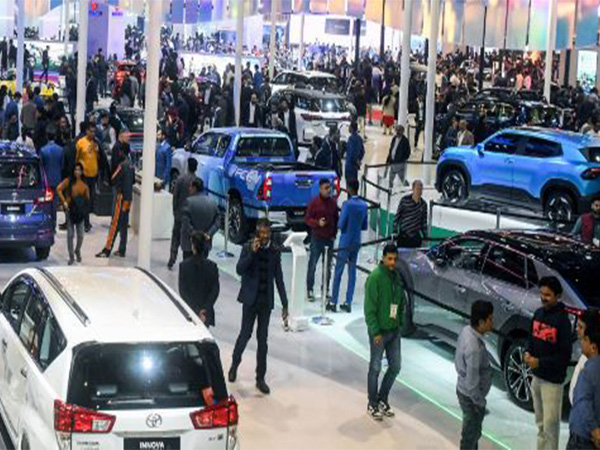EV Industry Urges Government for Bold Reforms in Union Budget 2025-26
As the Union Budget 2025-26 approaches, the electric vehicle (EV) sector calls on Finance Minister Nirmala Sitharaman to implement vital reforms that boost affordability, infrastructure, and innovation. Industry leaders emphasize the need for subsidies, tax rebates, and policy support to drive sustainable growth and mass adoption of EVs in India.

- Country:
- India
As the Union government prepares for the Union Budget 2025-26, significant voices in the electric vehicle (EV) sector have called on Finance Minister Nirmala Sitharaman to enact transformative reforms. These reforms are seen as critical for enhancing affordability, infrastructure, and innovation within the industry, addressing both manufacturing and consumer-centric challenges. Recent government initiatives, including the FAME India Schemes and the PLI Scheme for Automobile and Auto Components, illustrate a proactive stance.
Given India's need to tackle environmental pollution, energy security, and economic sustainability, industry leaders suggest enhancing government efforts. Anshul Gupta, Managing Director of OPG Mobility, notes the rapid growth fueled by sustainability goals. Gupta emphasizes addressing infrastructure gaps and supply chain inefficiencies to lower manufacturing costs and make EVs accessible to the masses. He advocates for government support through subsidies and tax incentives, especially in tier 2 and 3 cities with electric two-wheelers and three-wheelers.
Similarly, Dinkar Agrawal of Oben Electric underscores the need for reducing costs via structural reforms, including a uniform 5% GST across EVs and related components. He highlights the need for resolving the inverted GST issue to ease working capital stress. Consumer-oriented measures, such as reduced interest rates on EV loans, are also crucial for bridging affordability gaps.
Kunal Arya of ZELIO E Mobility Ltd calls for consistent policy support, urging the introduction of long-term subsidies akin to the FAME scheme. Arya suggests a reduction of GST on spare parts from 28% to 5-12% to cut production costs. Ishaan Parwanda of Trinity Touch points out tax disparities and advocates for reductions in GST on lithium-ion batteries and charging services to promote domestic production incentives under the Atmanirbhar Bharat initiative.
Raghav Arora of Statiq highlights technology's role in driving EV adoption and calls for innovations in battery technology and charging solutions. He, like others, urges a reduction in GST on charging services and batteries to encourage affordability and demand. As the Union Budget 2025 nears, the EV industry remains hopeful for government measures addressing infrastructure, tax policies, and innovation to position India as a leader in sustainable mobility.
(With inputs from agencies.)
ALSO READ
Keir Starmer Defends Finance Minister Amid Economic Challenges
Spain's Housing Reforms: Tackling Affordability with New Measures
Kathy Hochul's Populist Pitch: Balancing Affordability with Re-election Challenges
Industry Leaders Set High Hopes on Nirmala Sitharaman's Eighth Budget
Constitution Clash: Finance Minister Criticizes Rahul Gandhi's Remarks










